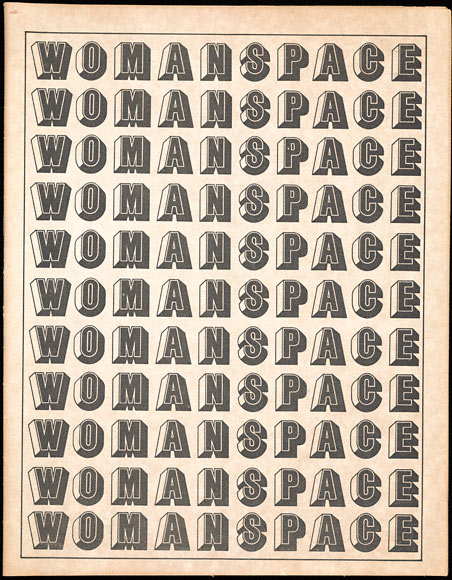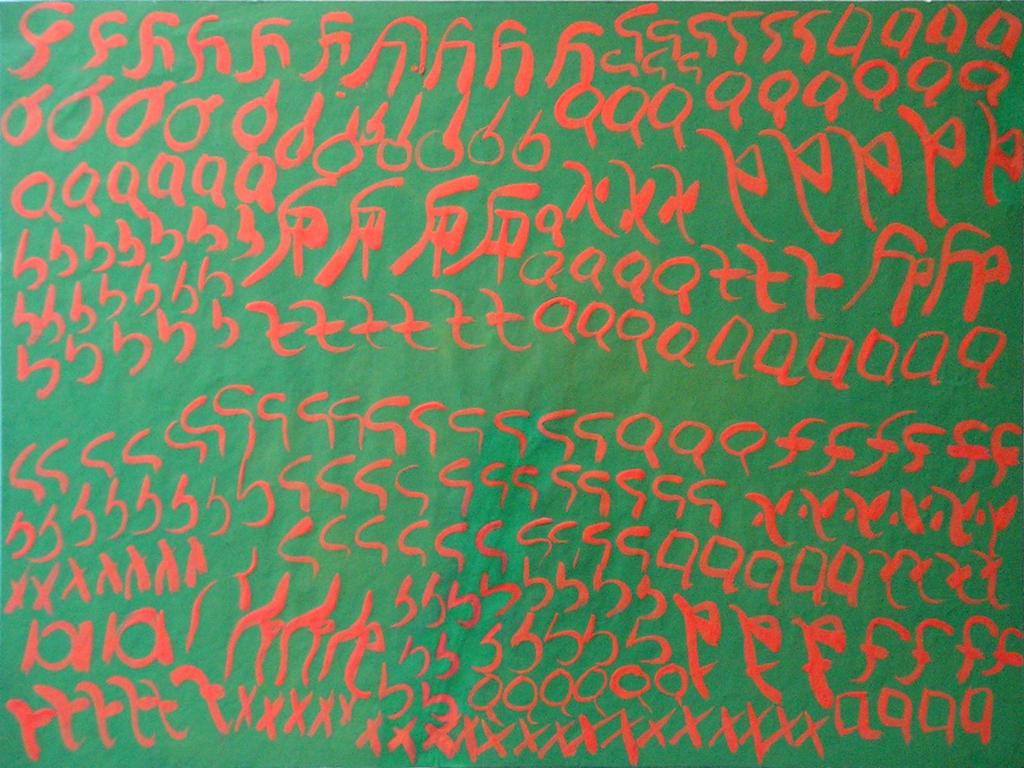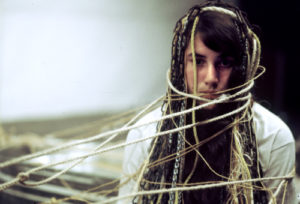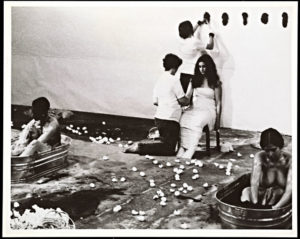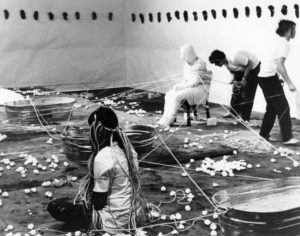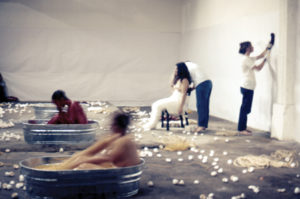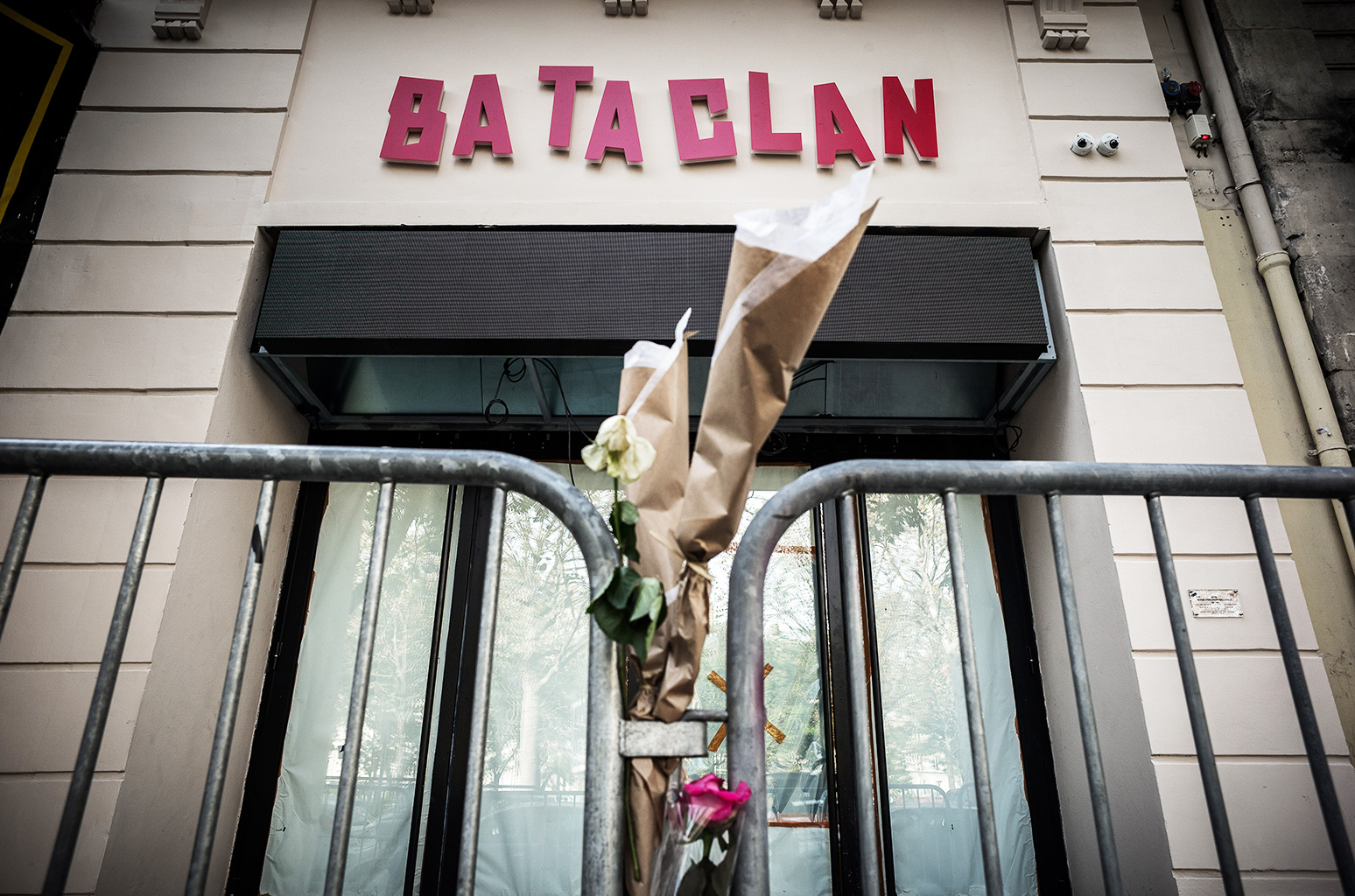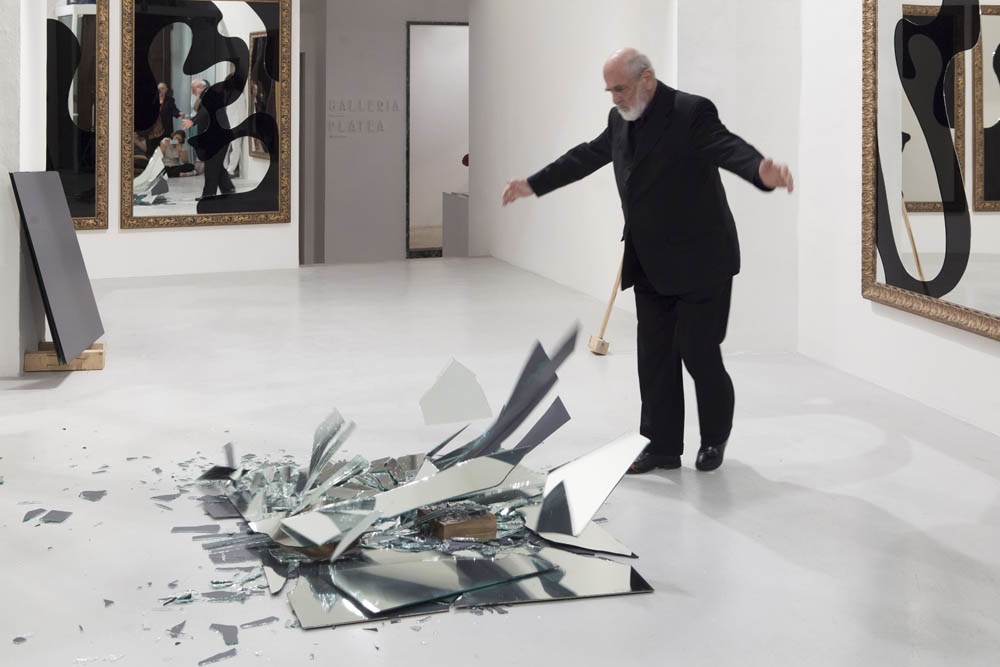In this essay, I examine the existing tension between feminist theory and practice. In order to do so, I focus on the crucial role of ‘experience’ and look at its legitimacy as constituting empirical knowledge. Drawing from Oksala considerations (2016), I firstly endorse the idea that individual and collective experiences are incorporated within philosophy. Hence, I argue that the analysis of some political practices embraced by feminist grassroots Italian associations (such as Scosse) can bridge the above-mentioned gap. Finally, I claim that it is possible to ‘experience philosophy’ by building up the body and its role.
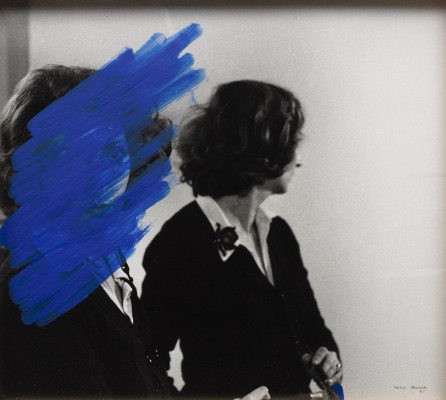
The tension between theory and practice is especially important within feminist philosophy since feminism itself strives for political and societal transformation. Indeed, during the time of “the personal is the political” in the western countries many feminists working in the Academia were also activists in political organizations for women’s rights and the academic theories developed alongside the non-academic practices. As Pravadelli puts it, “the alliance between theory and practice, was the historical specificity of 1970s feminism”[1]. Comparing to the other western countries where theory became progressively institutionalized, the Italian academic situation was peculiar, due to the anti-academic position of the Italian radical feminism during the 70s. Rather than ‘occupying’ the universities, it tried to create spaces for research and debates outside of them. Some thinkers welcome the positive results of that choice by highlighting the consequent importance of politics for Italian feminism (Bono and Kemp, 1991) and by highlighting the resulting synergy between theory and practice.
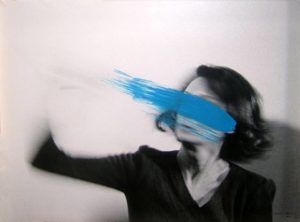
Feminists from diverse environments, set up many cultural, political, and social spaces to gather and discuss the pressing issues at the time (marital law, abortion, labour rights) starting from their personal experience. As a consequence, they not only produced remarkable socio-political changes but they also created spaces for theoretical debates and for spreading the feminist theories. The philosophical community Diotima (in Verona) and the establishment of magazines such as Donna Woman Femme (since 1975) and Sottosopra (1974-1996) or the more recent Leggendaria (since 1986) represent a tangible example of these fruitful theoretical spaces outside the Academia.
Personal and collective experience clearly played a key role in the emerging of philosophical concepts and theories; such as sexuality, identity, etc. or better, it was crucial for the emerging of Italian understanding of such concepts. The consciousness-raising women’s groups based on the feminist practice of “partire da sé”[2], as Lonzi (1977) calls it, are maybe the best example of the collective, creative and concrete role that feminism held during the 70s and the 80s. They contributed to maintaining the focus on the experience and by establishing a significant number of cultural centers, women’s libraries, and documentation centers. By doing so, they managed to raise awareness on women’s condition, while nurturing the development of feminism in different fields such as psychoanalysis, philosophy, social sciences, pedagogy, and education[3]. Feminist activists and thinkers during such time succeeded in building theories starting from the understanding of the lives of ordinary men and women. Indeed, applying what Eley (1989) suggests, the hidden abstract structures of exploitation and domination that they tried to uncover and transform, can be encountered especially in everyday life. In this regard, emblematic is the case of domestic violence. Only when women decided to share their personal experience of oppression, describing the everyday dynamics within the family realm, was it possible to build up and explore in depth the concept of gender-based violence.
The Italian situation, especially during the 70s and the 80s, is an example of how theory and practice mutually benefitted from each other and how personal experience might constitute an important basis for knowledge; notwithstanding, it is not self-evident that experience itself might be a source of knowledge. As the scholar Oksala (2016, p. 36) notices, “appealing to one’s experience as evidence for one’s theoretical or political claims has become theoretically unsophisticated at best, if not completely illegitimate in feminist debates.”[4] Scott’s argument (1991) against the epistemological value of women’s experience is the most remarkable example of excluding experience from the sources of knowledge. According to Scott’s approach (in Oksala 2016), the attention reserved to women’s personal experience is not only useless but also counterproductive. Indeed, focusing on the personal experience, and therefore on the particular, overshadows the analysis of the patriarchal structure of a given society. It is true that the particular alone cannot explain societal structures. However, we cannot, because of that, claim it has no legitimacy in explaining the world.
Following Scott’s thought (2016), the main problem with valuing experience is that it is coextensive with the normative discourse of the society we live in. Namely, it occurs already within the constraints of the dominant narrative and it is by default influenced by the existing discursive norms. According to me, when we refer to experience we are not considering only those acts characterized by the repetition of norms, but also all the experiences of rejecting the norms and opening a space for new understanding of the world (Butler, 1999). In this regard, women’s consciousness-raising groups in Italy represented a new practice that fostered the unveiling first, and the deconstruction then, of oppressive power’s dynamics notwithstanding their simultaneous influence.
I want to highlight here the importance of the collective dimension. Participatory experiences triggered the production of new theories, and led to a shift in the dominant narrative; i.e. essentialism, intersectionality, etc. Although I recognise the strong influence that norms hold, I think that discourse and experience are bound by a reciprocal movement. Discourse shapes our experience. Likewise, experience is responsible for influencing the philosophical discourse we employ to make sense of the world. This is especially evident, for instance, in the experience of language, which shapes our thoughts and worldview. However, we can at the same time change it, according to the use we make of it. As Chimamanda Ngozi Adichie says (2014), “Culture does not make people. People make culture”[5] because no matter how ancient and consolidated it can be the reference system bore by each act, there is always space for changing it in our everyday life.
I believe that the ‘problem’ is that we refrain from seriously consider the changes we produce by means of our bodies. In addition, we tend to belittle the role of emotions because they do not correspond to the rational criteria of objectivity and universality we aim to abide to. Interestingly, the history of Western feminism itself can serve as a tapestry of how many concepts were indeed challenged thanks to the experiences of women with different backgrounds and thanks to the collective reevaluation made of the role of subjectivity. It was, and still is, mainly starting from personal experiences of gendered subjects that feminists could question many philosophical concepts, such as the hegemony and the objectivity of reason, as a male prerogative, as explained by Lloyd (1984).[6]
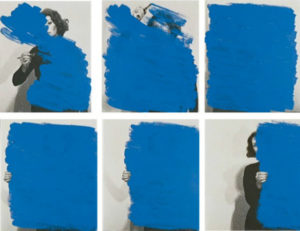
Moreover, I argue that considering both personal and collective experiences is very important to reject the idea that knowledge is valuable only when constructed through a logical analysis. The absolute legitimation of the reason, as we know it, is itself a patriarchal construction that excludes each non-purely rational source of knowledge or every participatory construction of theories. Before it was conquered by (or granted to) women, the right to vote and to be voted for, we made experience, for instance, of the paradoxical situation in which men drafted and approved laws about women’s body on the basis of their studies (or their reason), without any practical knowledge of that particular situation.
Academically speaking, we are accustomed to privilege theoretical thinking, with the impression “that ideas normally originate from theoretical, often solitary, (male) thinkers”[7]. Furthermore, the use of the body, as source of knowledge, is still unthinkable within the academic realm, let alone the general public. Within the Italian university system, there are some departments, especially within Social Science, employing non-formal education tools. However, regarding philosophy, we are still far away from giving any proper legitimation to the methods based on personal experience or to the use of the body as a valuable source. I believe that the goal of philosophy is to question life and living. For this reason, it ought to pay more attention to the actual lives of living individuals and be more engaged with societal and political changes rather than bound by idealistic and abstract notions. On the contrary, if philosophy is relegated to a mere theoretical sphere – with no influence on social and political life –, then it becomes a sterile intellectual exercise unintelligible for most of the people.
In this regard, I do believe that feminism is fruitful when questioning philosophy in its institutional meaning, and that it can redeem philosophical and political representations of personal and collective experiences. I think that the controversial situation of unrecognized gender and women studies in Italy is worth considering. Currently, Gender Studies are not incorporated in Philosophical Studies. Many feminist theorists are not teaching in the philosophy departments and that means that they are not obliged to follow the standards of such discipline. Indeed, the few available departments are more inclined to organize different activities involving visiting experts. “Festival delle donne e dei saperi di genere” (2012)[8], organized by the University of Bari, can be a good example of the cooperation between the scholars, the researchers, the artists, and the grassroots organizations as Punti Cospicui and ArciLesbica Mediterranea. The Festival proposes every year a different topic, addressed through several disciplines and provides a wide range of activities designed to benefit from participants’ contributions; such as forum-cinema, seminars, theatre workshops, and lectures. As declared by the Director Dr. Recchia Luciani, the goal of the Festival is both to theoretically support the deconstruction of the existing Western logos’ structure, and to advocate for practical transformations into the political and societal realm.[9]
I think that the presence of philosophy outside the Academia might reveal that philosophy is itself experiencing a fruitful shape-shifting phase. By virtue of participatory feminist influence it might renew itself and move to a philosophizing practice free from the current protocols of the discipline.
Obviously, the enduring delay of Women and/or Gender Studies academic recognition in Italy entails the lack of acknowledgement of both the research and its researchers, but on the other hand, several thinkers and researchers became engaged in more empirical activities, cooperating with the organizations while raising awareness on the role of gender in daily life, the power relations, and gender stereotypes, to name a few.
I believe that the cooperation is worthwhile because while the academic theories focus on the ‘universal’, and they might appear very distant from ordinary people, most of the organizations promoting gender equality are local organizations, strongly embedded in their context, valuing the relationships with people and serving as a referral point. The attention given to the particular context is especially fruitful because it is mostly based on sharing personal experiences and many activities encourage personal transformation, but the activities targeting a specific context are unable to trigger relevant social and political changes. Furthermore, practice without theory produces a vast quantity of knowledge missing the necessary systematization to be intelligible. As Lonzi (1977) admits, the lacking of organized theory was one of the main limitations of the consciousness-raising groups. She further argues that, “the endless discussion within the groups generated a wealth overflowing intuitions in which it was difficult to lay hands on. One couldn’t stand between the perception of their importance and the discouragement for confusion.”[10]
For instance, since 2014, the organizations Scosse, Stonewall, and Il Progetto Alice organize the national meeting “Educare alle differenze” [11] that aims to create a network among the grassroots organizations promoting gender equality and gender-inclusive identity in public schools. The meeting, that gathers more than 200 organizations, is designed as a self-training and it represents also an opportunity to share personal experiences related to the topic. Although the network is a good strategy to achieve political impact, the meeting does not contribute to the current theoretical debates because of the lack of the knowledge’s systematization.[12]
Rather than trying to systematize the political experiences of the participating organizations, generally speaking I suggest that it is possible and necessary to find new ways to combine theory and practice, by giving space to and by incorporating the personal experiences within the academic world to complement the existing theories. Braidotti (1994), among others, already questions the scientific rational way of thinking and she suggests a nomadic critical thinking, which accounts for the processes rather than concepts. She claims that the theoretical feminist discourses are “[…] ‘in transit’, moving on, passing through, creating connections where things where previously disconnected or seemed unrelated, where there seemed to be ‘nothing to see’.” [13] Following Braidotti’s stance (1994), I propose a way of relating and building notions that is always “in-between” zones, between theory and art, body and mind, personal and political. Usually within the academia, we discuss about the body and its political and social meaning; we discuss how the body is perceived and how we perceive reality through the body; but we don’t use it as source of knowledge. I believe that theatre might represent a way to take into account the knowledge of the bodies. I am thinking of a specific theatrical project that combines many different arts and it is called “Unveiling Myself”[14]. It aims to explore gender concepts such as womanhood, manhood and the interplay of power structures through poetry, symbolic language, dance and rituals. Starting from personal experiences, it becomes possible to look at political and social issues as something that involve us personally. During the workshop, real-life stories are performed by the storytellers themselves as a way for the participants to bear witness to significant social issues. The theater productions are taken from individual and group interviews and consist of scripted text, music, movement, imagery and film projections. No previous nor professional experience is required.
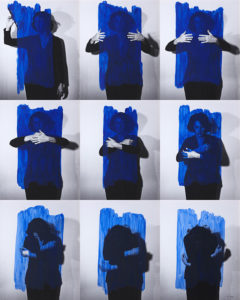
A similar project that could be developed within the Department of Philosophy is “The Philosophical Theatre”, which could combine both the personal experience, the work with the body and the philosophical notions. The students of philosophy could participate to the workshops and they could stage the milestones of feminist thought such as the Ethic of Sexual Differences (Irigaray, 1984), or on The Second Sex (De Beauvoir, 1949), on Gender Trouble (1990) and so on, drawing from their personal experiences and their philosophizing skills, they can create plays with a strong connection between micro scene and the macro socio-philosophical dimension. I am convinced that the combination of theory, emotions and personal experience, could foster critical thinking among people that would otherwise have no connection with philosophy. Furthermore, such approach could prevent feminist philosophy from losing its relation with ordinary lives. On the other hand, political movements need more space for collective thinking. Indeed, based on my personal experience within feminist organizations, I noticed the tendency to simplify feminist theories or to take for granted some widespread ideas without being knowledgeable on a specific theory, let alone engaging in questioning it. For example, to explain the sex/gender differences, it is often made reference only to the definition set in the Istanbul Convention on preventing and combating violence against women and domestic violence[15].
In conclusion, I believe that theory and practice can help and nourish one-another. A multi-disciplinary approach might be the best method to describe the complexity of the reality, while valuing both the rational and the symbolic. Not only might creativity and rationality together provide the conditions for political and societal changes, but also the conditions for a new way of thinking that focus more on the ‘in-between’ zones of ours collective and personal subjectivity. Such shift might lead to what Braidotti (1994) calls the “in-transit” discourses and it can foster the unveiling of the existing connections where currently it seems to there is “nothing to see”.
Note:
[1] Pravadelli, Veronica: Women and Gender Studies, Italian style, in European Journal of Women’s Studies 17 (2010), 1, pp. 61-67
[2] Starting from oneself, understood not as a narration of one’s own story but as a practice of unveiling the connection between the subjective experience and the existential dimension of women
[3] According to InGenere’s survey (2011-2012) those are the few Academic Departments promoting a gender sensitive approach, in the curricula as they are, or providing Masters in gender studies. www.ingenere.it/articoli/il-sesso-mancante-nelluniversit-italiana
[4] Oksala, Johanna 2016, Feminist Experience, Foucauldian and Phenomenological Investigations, Northwestern University Press p.36
[5] Chimamanda Ngozi Adichie, We Should All Be Feminists, 2014
[6] Lloyd, Genevieve, The Men of Reason, Methuen & Co. Ldt, 1984
[7] Whipps, Judy, “Pragmatist Feminism”, The Stanford Encyclopedia of Philosophy (Fall 2013 Edition)
[8] The women’s and gender’s knowledge Festival, www.festivaldelledonnetgeneri.wordpress.com
[9] Filosofie e saperi di genere, in Postfilosofie rivista di filosofia pratica e scienze umane, Caratterimobili, n.8, 2015, p.7-9
[10] Lonzi, Carla 1977, Itinerario di riflessioni, in È già politica, Scritti di Rivolta Femminile, Milano 1977, pp. 33, translated by the author
[11] “Teaching the differences”
[12] Every group of discussion writes a report which is available online, but they are a practical description of the work
[13] Braidotti, Rosi Nomadic Subjects: Embodiment and Sexual Difference in Contemporary Feminist Theory. New York: Columbia University Press, 1994, p.177
[14] The project has been conceived by Alessia Cartoni, www.alessiacartoni.wixsite.com/hazdeluz
[15] Gender is defined as “the socially constructed roles, behaviours, activities and attributes that a given society considers appropriate for women and men”. Council of Europe Convention on preventing and combating violence against women and domestic violence, www.coe.int/en/web/istanbul-convention/text-of-the-convention

